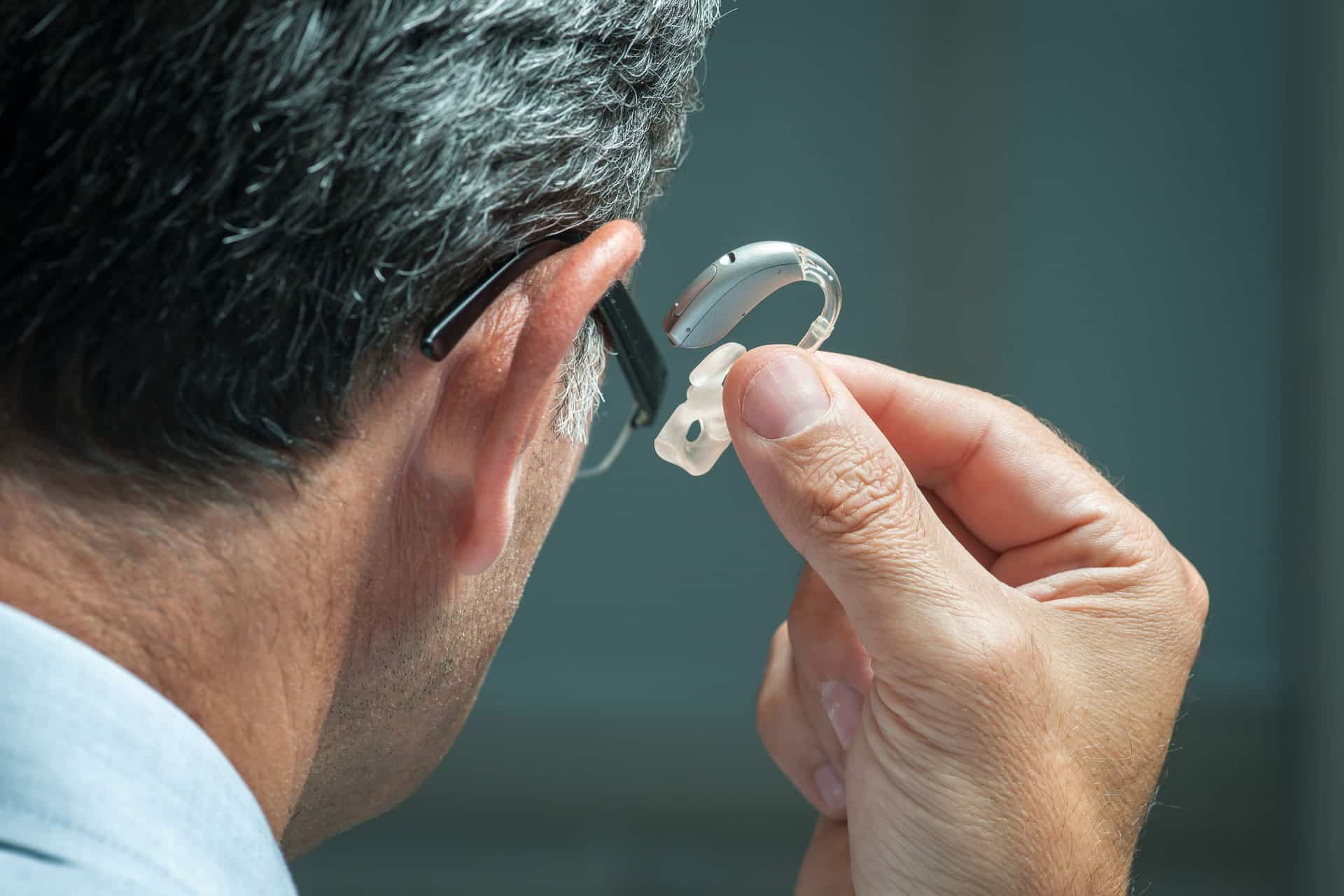Delivery in 2-3 working days
When do you need a hearing aid?
It is completely normal for hearing loss to occur at some point in old age. Sometimes, however, illnesses or injuries are the reason why hearing loss occurs. Hearing loss can occur at any age. Sometimes it is only temporary, sometimes the problems become chronic. If this is the case, hearing aids are often hearing aids are often required to improve hearing ability and increase quality of life.
But when do you actually need a hearing aid? How do you find out whether you need a hearing aid and which hearing aid is the right one? We would like to answer these questions below.
Do I need a hearing aid?
These indicators can provide clues
Hearing problems do not necessarily mean that you need a hearing aid. However, there are some general indications that you may need a hearing aid:
Difficulty understanding conversations:
Problems following conversations and frequent questions and requests to repeat what has been said may indicate hearing problems.
Hearing problems with background noise:
Difficulty understanding speech in the presence of loud background or background noises such as music or conversations, street noise, etc.
Loud televisions:
Do you often have to turn up the volume on your TV or radio to hear them better? Does this disturb others? This could also be an indication of hearing loss.
Feedback from friends, colleagues and family:
Good acquaintances are often the first to notice when they can no longer hear as well as usual.
Hearing tests:
ENT specialists or hearing aid acousticians can objectively determine whether and to what extent you have a hearing loss.
Degree of hearing loss: a hearing aid makes sense from this value onwards
Hearing aids are state-of-the-art technical devices designed to help people with hearing problems or hearing loss to hear and communicate better. There are many different types of hearing aids, manufacturers, etc.
Basically, it can be said that a hearing aid is always recommended if there is a significant hearing loss that affects daily life. This in turn depends on various factors, including the individual needs and lifestyle of the person concerned.
However, there are different degrees of hearing loss. These are usually divided into four categories:
Minor or mild hearing loss:
The hearing ability deviates by 20 to 40 dB from the defined hearing threshold. For example, those affected have difficulty hearing quiet or distant conversations. Background noise can also make it difficult to understand.
Moderate or moderately severe hearing loss:
The hearing ability deviates by 41 to 60 dB from the defined hearing threshold. Those affected may have difficulty hearing and understanding normal conversations.
Severe or profound hearing loss:
Hearing ability deviates by 61 to 80 dB from the defined hearing threshold. Conversations are almost impossible to understand for those affected without a hearing aid. Loud noises also have to be closer to be heard.
Hearing loss bordering on deafness:
The hearing loss is over 81 dB. Only very loud noises are perceived. Communication is usually not possible without hearing aids or sign language.
A value of 0 to 20 decibels (dB) is considered normal. If the hearing loss is 20% to 30% or more than 25 dB, hearing aids are usually recommended.
How do I find out if I need a hearing aid?
If you notice one or more of the above indicators, it makes sense to investigate further.
The best way to find out whether you need a hearing aid is to have a hearing test. Our online hearing test will give you a first impression of whether you have difficulty understanding what is being said against background noise.
However, if you have hearing problems, it is advisable to have a professional hearing test by a doctor or hearing care professional.
A sound audiogram is often used to measure hearing loss. This involves playing different sounds at different volumes to the person affected - using headphones and separately for each ear. The person must now indicate which sounds they can no longer hear in which ear.
Finally, the deviation of the hearing curve from a normal hearing curve on the diagram can be used to determine the degree and type of hearing loss.
In which cases of hearing loss does a hearing aid help?
Depending on the degree of hearing loss, but also depending on physical conditions etc., there are various types of hearing systems that differ in the way they work.
However, there are circumstances in which hearing aids do not help those affected, for example in the case of hearing loss bordering on deafness, various anatomical obstacles or a lack of function of the auditory nerve. Possible intolerance or psychological and cognitive limitations can also be reasons why a hearing aid is not useful or functional.
In these cases, however, other forms of treatment or technologies may be able to help. These include cochlear or middle ear implants and alternative communication methods such as sign language, lip reading or transcription apps.
You should therefore always consult a hearing specialist to find the best solution for your individual case.
When am I entitled to a hearing aid?
Whether you are entitled to a hearing aid, i.e. whether your health insurance will cover the cost of a hearing aid, depends on your hearing loss or your hearing ability. This is diagnosed by an ENT doctor.
According to the "Directive of the Federal Joint Committee on the Prescription of Assistive Products in Statutory Health Insurance", the prerequisite for a one-ear hearing aid fitting is that the ...
"the tonaudiometric hearing loss (DIN ISO 8253-1) on the worse ear is at least 30 dB in at least one of the test frequencies between 500 and 4000 Hz" and "the speech audiometric comprehension rate on the worse ear with headphones (DIN ISO 8253-3) using the Freiburg single-syllable test at 65 dB is no more than 80 %".
(Source: Directive of the Federal Joint Committee on the prescription of medical aids in SHI-accredited medical care)
What costs for a hearing aid are covered by health insurance?
If an ENT doctor diagnoses hearing loss and prescribes a hearing aid for the person affected, the costs are covered by the statutory health insurance.
However, this only includes medically necessary hearing aids that meet the necessary requirements to enable a sufficient improvement in hearing.
You can find out which costs, i.e. which specific amounts are covered, on your health insurance provider's website, for example.
If you want a modern device with additional functions or greater convenience, you will usually have to bear the costs or additional costs yourself.



